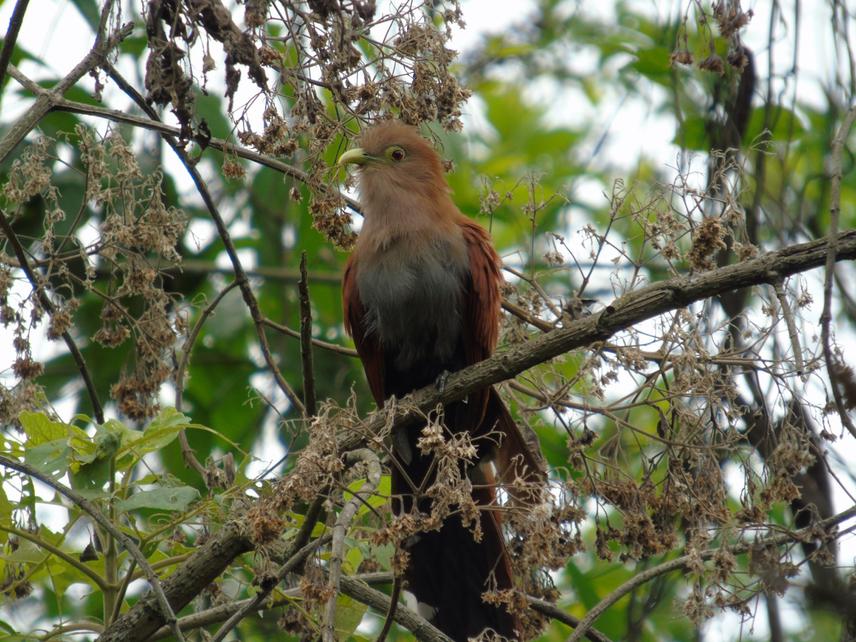Graciela Alcántara-Salinas
This project aims an Eco touristic project as a strategy to protect birds and the traditional knowledge attached to them in a Nahuatl cultural context.

Piaya cayana.
Landscapes in Coetzapotitla have unique rainforest and cloud forest views which make this place suitable to achieve an ecotourism project, additional attractions are their culture and traditional food that certainly might attract tourists to this place. Through this project we are trying to involve as much people as possible to promote community development that might improve their wellbeing in relation to environmental conservation. The provision of a tourist attraction place might bring restoring agency to local people, enabling them through beneficial practical activities to become stronger and more confident about their own identity. This project have five main steps:
1) a bird inventory, every month we record population birds by means of observation and hearing; these data will allow us to obtain bird diversity and population rates. Additionally, we are recording data on bird habitat preference, latitudinal and altitudinal distribution, nesting and their dynamic within the ecosystems for scientific and biological purposes.
2) to incorporate local knowledge to ornithological data such as Nahuatl names, spiritual values attached to species, local uses (medicinal, utilitarian, edible, etc), and cultural narrative.
3) it is also important to obtain Nahuatl nomenclature for different types of birds for revitalizing nahuatl culture
4) with the previous data we will build an ecotourism guide. This book is a way to obtain the integrity of biocultural complex especially to make children aware of their future conservation and a feasibility ecotourism project. Both ornithological data linked with bird traditional knowledge will provide a more realistic basis for bird conservation and management. These two components will provide the knowledge basis for bird ecotourism and assist local people in the sustainable use of their natural resources as a realistic economic alternative. Environmental education will hopefully improve their practices regarding care of the environment and stress the importance of biodiversity. We want people to realise that biodiversity is important in itself, and for the ecological and economic health of the human community. We wish to show how the local community can benefit practically from bird conservation as well as to promote better awareness of conservation issues that are consistent with local needs and cultural values. This conservation issues emphasize the importance of recognizing biocultural integrity in implementing effective conservation strategies.
5) the promotion of social-cultural cohesion.